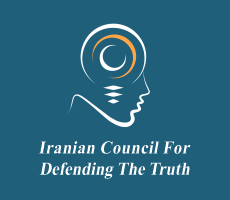China–Iran 25-year economic cooperation deal signed on March 27, 2021 is expected to bring rapid geo-economics and geopolitical changes in the Middle East. Iran was desperately waiting for such a miracle to happen due to the US sanctions imposed on it. China was also looking forward to increasing its share in the Iranian oil market for its production. The deal will make Iran a part of China’s Belt and Road Initiative (BRI). Hence, the accord brings Iran into China’s BRI project that stretches from East Asia to Europe. The project will enhance Beijing’s economic and political influence in the region, creating anxieties for both the US and India. Iran appears to be delightful with the Chinese investment; the Iranian Foreign Minister Mohammad Javad Zarif termed China “a friend for hard times”.
China, despite the US sanctions on Iran, remained the largest importer of Iranian oil. Its import of oil from Iran in 2021 reached record high. Tehran over the 14 months has exported 17.8 million tons [nearly 306,000 barrels per day (bpd)] of crude oil to China. China remains the world’s largest importer of oil since 2017 surpassed the US in 2020. Beijing tries to capitalize the Iranian energy sector. US$280 billion is expected to be allocated for the Iranian oil and gas and petrochemicals sectors in the envisaged US$400 billion investment.
Chinese US$280 billion investment in Iranian oil and energy sector determines that India will be deeply affected by the massive investment, and the latter would be halted from importing the Iranian oil. China will get Iranian oil at a discount of at least 12% and Beijing will be able to denominate payment in “soft currencies”, including those of the Central and African states. It further enables China to recycle its foreign exchange reserves from its trade surpluses, eschewing the US dollar and its dominated International Payments System.
International politics, at the current juncture, witnesses the growing rivalry of an established power US and a rising power China. Both players strive to promote their ideologies and political clouts by leaps and bounds. The US is trying to promote its democratic values through rein-forcing Quad known as the Quadrilateral Security Dialogue comprised of the US, India, Japan and Australia. China, on the other hand, is committed to promoting an “alliance of autocracies” attributed to countering the Quad. Beijing seeks to form a Quad-type system named the “trans-Hima-layan Quad” group consists of Afghanistan, Pakistan, and Nepal. However, India and Iran in the prevailing great power competition face divergence in their core interests.
New Delhi suits well within Quad in promotion of the US democracy, while Iran is categorized in China’s alliance of autocracies. Iran, apparently, is disinclined towards India and tilts more towards an emerging alliance of five nations such as China, Russia, Pakistan Turkey and Iran for the stability, peace and progress of the region. An alliance of five nations was previously proposed by Tehran that may pose a national security challenge to India in the future.
China–Iran deal, arguably, will bring Iran and Pakistan more closer. Tehran is likely to participate in CPEC in the future. Tehran’s participation in CPEC will irritate Pakistan’s archrival India that never wants cordial ties of Islamabad with Tehran. To bring peace and stability in the Middle East, China is ready to host direct talks between Israel and the Palestinians. China gives a vivid message to the Middle Eastern countries to not solely rely on the US, instead Beijing is ready to solve the outstanding issues of the region. The US pivot to Asia-Pacific serves Chinese interest in the Middle East. China reckons the US in the Middle East is in an irreversible decline, seeing itself as a benign power of the 21st century, enhancing its foothold in the region.
Iran and Turkey are crucial players in the Middle East; both have improved their diplomatic ties with Beijing, castigated New Delhi’s move of abrogating Article 370 of the Indian Constitution, revoking the special status of Indian Illegally Occupied Jammu and Kashmir (IIOJK). Denunciation of New Delhi by Iran and Turkey gives more confidence to both Beijing and Islamabad. New Delhi is in deep trouble, Chinese presence in the region erodes its influence, and the forging of ties of former with the US further irritates Iran and Turkey resulting in the emboldening of China’s position.
China and India give a great deal of importance to energy in the Middle East, increasingly becoming dependent on oil and gas of the region. For both countries, Saudi Arabia and Iran remain their major suppliers. In order to compete with each other, both states have stimulated their state-owned companies to obtain “equity oil contracts” at premium prices to manipulate the prices and production. So far in the competition, Chinese companies, due to technological advancement have stolen a march on the Indian companies resulted in losing of several Indian contracts. Above all, Iran has a considerable influence in Iraq, Syria and Yemen, playing an extensive role to ease China’s hardships in the aforementioned countries.
The China–Iran deal is likely to have an overwhelming ramification for New Delhi in Chabahar Port in Iran. Chabahar Port, undoubtedly, is an essential port for India, giving an access to Afghanistan and the Central Asian states. The development of the port stopped twice first in November 2018 and then in May 2019, against the backdrop of the US sanctions on Iran. Though New Delhi in 2019 got a waiver from Washington, the project witnessed frequent delays caused consternations for Tehran. India is unlikely to sustain the US pressure and will remain unable to construct the Chabahar Port, consequently creating a vacuum for Beijing.
Cordial ties of Tehran and Islamabad under Chinese umbrella would jeopardize the Indian interest in the region. Iran’s presence in Chinese bloc will further strengthen the security of CPEC, as prior to the deal India was alleged in using Iranian soil against CPEC. China–Iran deal is interestingly going to cement China’s maritime security in the Indian Ocean its presence in the Strait of Hormuz in the Indian Ocean in the future could enable Iran to play the card of Strait of Hormuz thereby causing dilemma for both the US and India. In the final analysis, the deal consolidates China’s position in the Indian Ocean. The prevailing century is the Indian Ocean century, whoever dominates the Indian Ocean will ostensibly dominate the world.


A very good read.
Balanced approach with critical analysis.
Would like you to add some statistics as well.